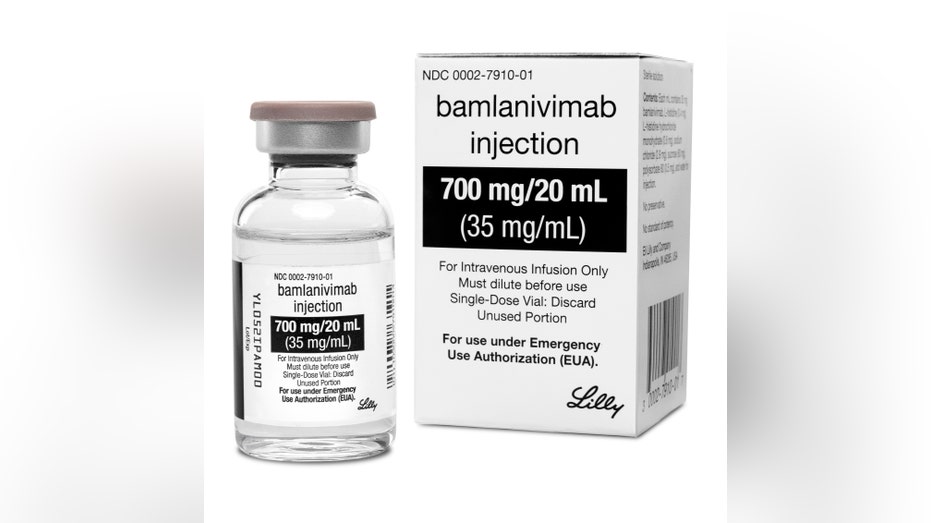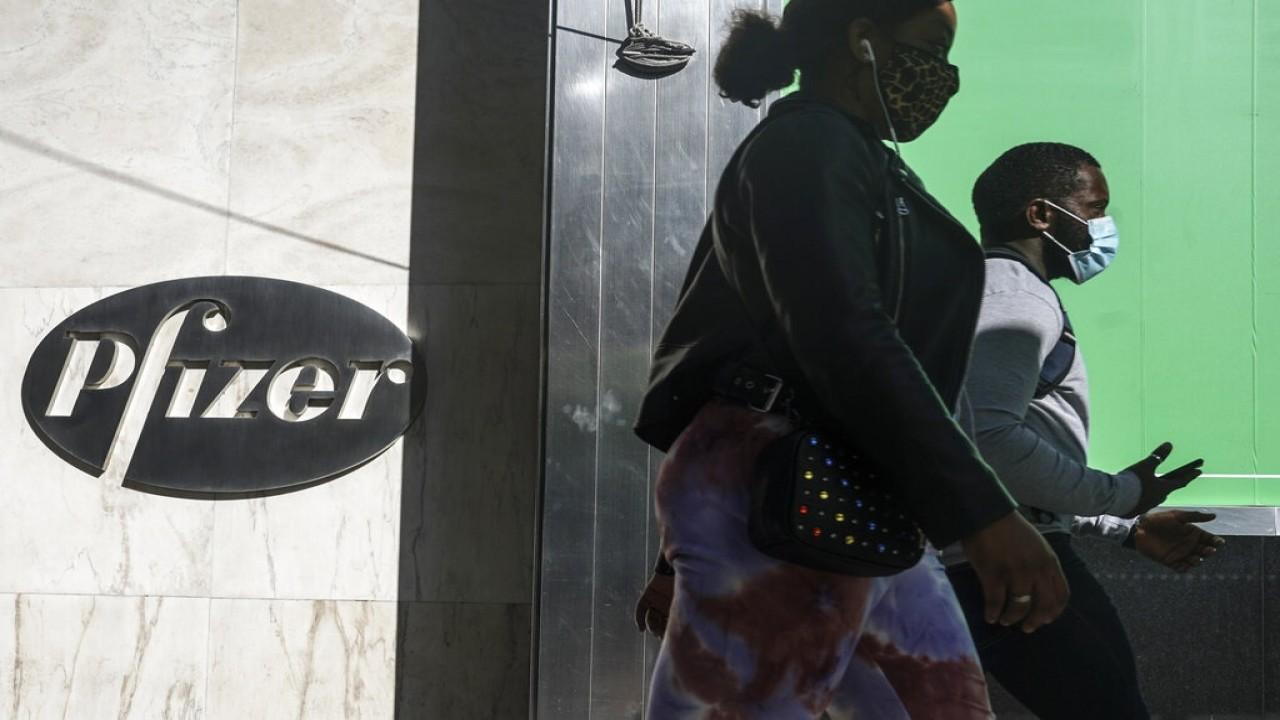FDA clears Eli Lilly COVID-19 antibody treatment for emergency use
The US government has purchased 300,000 doses for $375M
Why Pfizer's 'ultra-cold' COVID-19 vaccine presents logistical challenges
Dr. Amesh Adalja discusses the risks and benefits of Pfizer's coronavirus vaccine on 'Kennedy'
Eli Lilly has been granted an emergency use authorization by the Food and Drug Administration for its monoclonal antibody therapy, Bamlanivimab.
The treatment will be used for mild-to-moderate COVID-19 cases in adults who are high-risk, including those 65 years of age or older, or who have certain chronic medical conditions, and children who are 12 years or older and weight at least 88 pounds.

This photo provided by Eli Lilly shows the drug Bamlanivimab. On Monday, Nov. 9, 2020, the Food and Drug Administration cleared emergency use of Bamlanivimab, the first antibody drug to help the immune system fight COVID-19. The drug is for people 12
Eli Lilly chairman and CEO David A. Ricks said in a statement that the treatment will be a "valuable tool for doctors fighting the now-increasing burden of this global pandemic."
"The rapid development and availability of bamlanivimab could not have been achieved without the relentless work of our Lilly team, collaboration across the industry and the urgent work being done by the government to ensure appropriate allocation to patients who need it the most," Ricks added.
Dr. Patrizia Cavazzoni, acting director of the FDA’s Center for Drug Evaluation and Research, noted that the agency will "continue to evaluate new data on the safety and efficacy of bamlanivimab as they become available."
President Trump urged the FDA to accelerate approval of Eli Lilly's antibody treatment back in October along with Regeneron's experimental antibody cocktail. The approval will allow medical professionals to offer an alternative treatment option to Gilead's remdesivir, an experimental drug approved by the FDA last month.
CRITICS QUESTION PFIZER VACCINE TRIAL RESULTS TIMING
While the safety effectiveness of this investigational therapy continues to be evaluated, bamlanivimab was shown in clinical trials to reduce COVID-19-related hospitalization or emergency room visits in patients at high risk for disease progression within 28 days after treatment when compared to a placebo.
The drugmaker's Phase 2 trial involved 452 patients. Of 309 study participants injected with Eli Lilly’s drug, five, or 1.6%, were later hospitalized or visited the emergency room, compared with nine out of 143 people who received a placebo, or 6.3%.
Bamlanivimab should be administered via a single intravenous infusion as soon as possible after a positive COVID-19 test and within 10 days of symptom onset. Bamlanivimab is not authorized for patients who are hospitalized due to COVID-19 or require oxygen therapy due to COVID-19. In addition, there is insufficient data on the use of bamlanivimab during pregnancy. The company recommends the treatment's use only if "the potential benefit outweighs the potential risk for the mother and the fetus."
According to the FDA, monoclonal antibodies, such as bamlanivimab, may be associated with worse clinical outcomes when administered to hospitalized patients requiring high flow oxygen or mechanical ventilation with COVID-19.
GET FOX BUSINESS ON THE GO BY CLICKING HERE
Eli Lilly will begin shipping bamlanivimab immediately to national distributor AmerisourceBergen, which will distribute it as directed by the U.S. government's allocation program.
| Ticker | Security | Last | Change | Change % |
|---|---|---|---|---|
| ABC | NO DATA AVAILABLE | - | - | - |
The U.S. government has purchased 300,000 doses of bamlanivimab for $375 million and has committed that Americans will have no out-of-pocket costs for the medicine, although healthcare facilities may charge a fee for the product's administration.
The company anticipates manufacturing up to 1 million, 700-milligram doses of bamlanivimab by the end of 2020, with use around the world through early next year after discussions with global regulators. Beginning in the first quarter of 2021, the supply of Lilly's antibody therapy is expected to increase substantially, as additional manufacturing resources come online throughout the year.
| Ticker | Security | Last | Change | Change % |
|---|---|---|---|---|
| LLY | ELI LILLY & CO. | 1,070.87 | +14.07 | +1.33% |
Administration of bamlanivimab can potentially cause serious hypersensitivity reactions, including anaphylaxis. Other infusion-related reactions may include fever, chills, nausea, headache, bronchospasm, hypotension, swelling under the skin, throat irritation, rash including hives, itching, muscle aches or pains, and dizziness.





















